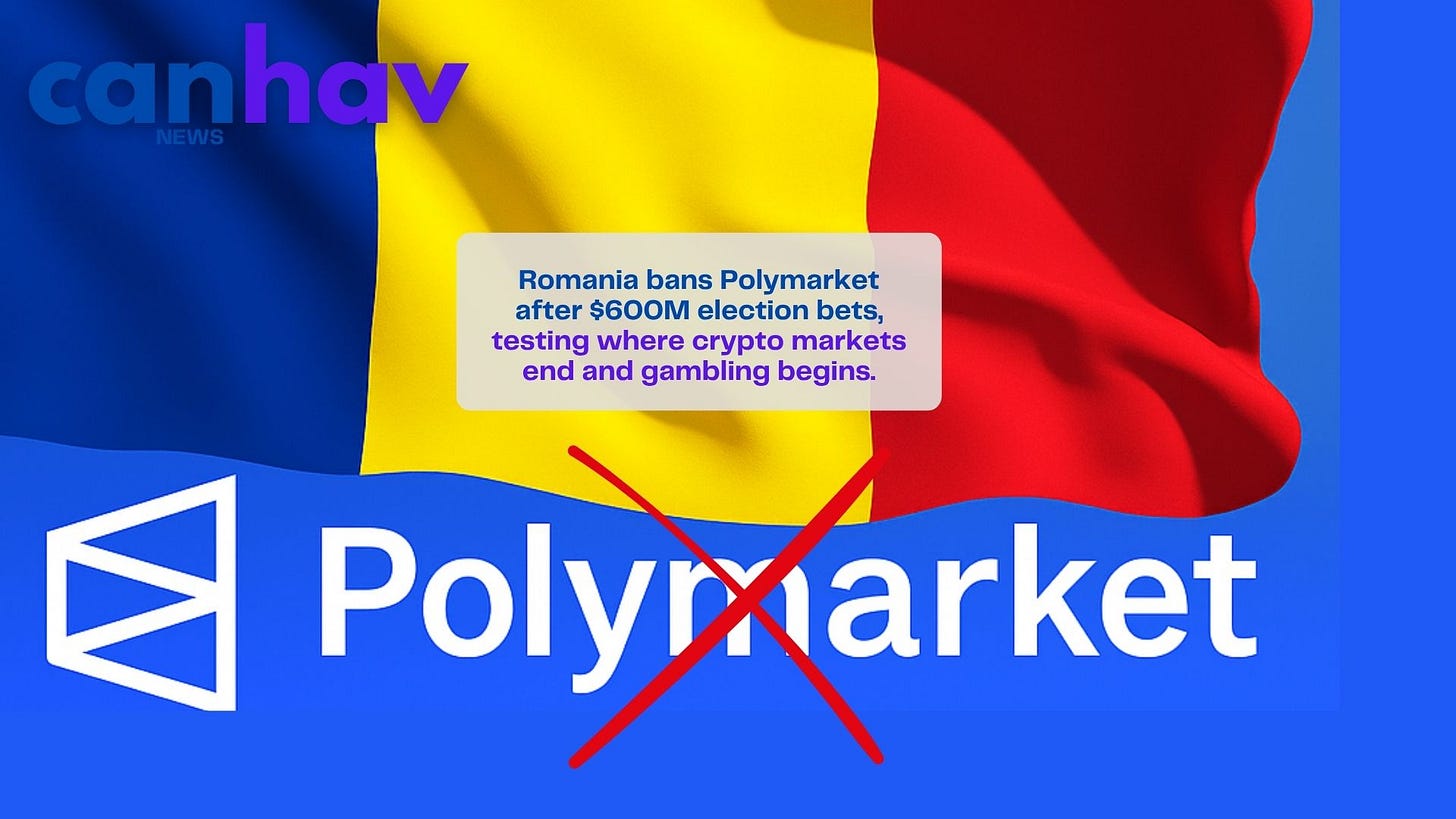Romanian Regulator Blocks Polymarket, Flags Prediction Markets as Unlicensed Gambling
Move underscores intensifying regulatory scrutiny of crypto-based event-trading platforms and raises questions for derivatives markets and regulatory arbitrage.
Romania’s gambling regulator has blacklisted Polymarket for running what it deems unlicensed “counterparty betting” amid more than $600 million in crypto-based wagers tied to national elections. The decision marks a widening regulatory clampdown on crypto-prediction markets and could impact derivatives-style activity across crypto infrastructure.
Regulatory Tide Breaks
On 30 October 2025, the National Office for Gambling (ONJN) (Romania) officially placed Polymarket on its blacklist for operating without a license, arguing that its users wagered on future outcomes in a model that falls under the country’s gambling laws—even when using crypto rather than fiat.
According to the ONJN, trading volumes on Polymarket exceeded $600 million during recent presidential elections, with local-election trading reaching over $15 million.
ONJN President Vlad‑Cristian Soare emphasised that “this is not about technology, but about the law,” emphasising that bets in lei or crypto still qualify as gambling if they meet the counterparty-bet definition.
Market and Derivatives Implications
For the crypto markets and derivatives sector, this move illustrates a shifting regulatory tide: event-trading markets are coming under the same scrutiny as traditional gambling if users are wagering on outcomes.
While Polymarket itself isn’t a pure derivatives exchange, the mechanics (users betting on outcomes, platform collecting commissions) resemble structured products or derivatives. Analysts note that such platforms could face higher compliance burdens, which may lead to reduced liquidity and increased operational risk for similar services.
From a market-data standpoint, the high trading volumes signal institutional and retail interest in politically-tied markets. With volumes in the hundreds of millions, the regulatory classification of such platforms may affect open interest, risk-premium pricing and volatility within the broader crypto-derivatives ecosystem.
Mechanics Under Scrutiny
The ONJN designated Polymarket’s activity as “counterparty betting” because participants bet against each other (rather than the house), the outcomes are uncertain, and the platform takes a cut.
This definition effectively treats what many crypto-firms call “event trading” as regulated gambling. Romanian internet service providers are now required to block access to the site from within the jurisdiction.
Looking Ahead
The blacklist signals increased regulatory clarity (and aggressiveness) around the boundary between crypto-prediction markets, gambling and derivatives. Platforms operating globally now face fragmentation: what’s permissible in one jurisdiction may be outright blocked in another.
From an infrastructure perspective, prediction markets may need to engage as licensed gambling operators or rework their model as financial products subject to securities or derivatives laws. For traders and investors, the regulatory premium (or discount) will increasingly be priced into platforms offering “event-outcome” markets.
Want more insights on crypto markets and derivatives, including latest news, key metrics, and credible data? Consider subscribing to Canhav Crypto Research.



